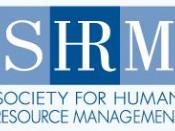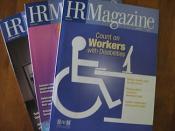Human Resources Management in the 21st Century
Human resource management consists of the attraction, selection, retention, utilization, motivation, rewarding, and disciplining of employees in organizations-in short, the management of people at work. During the last century or so, profound shifts have occurred in the industrial mix of the economy, the nature and extent of competition, and the types of work that employees perform. In particular, economic activity has shifted from agriculture to manufacturing and from manufacturing to services, with more and more employees performing relatively higher level analytical, professional, and technical work, and fewer employees performing relatively low-level, low-skill, and manual work. In the wake of these shifts, it has become common for businesses to claim that they (increasingly) compete based on intellectual or human capital rather than physical capital or "hard" assets (Pfeffer, 1994).
The phrase "human resource management," which supplanted the earlier "personnel management," conveys a sense of these shifts in that employees-people-are viewed as resources whose active management can positively contribute to organizational success.
In this sense, human resources are akin to customers, financial resources, operating systems, and technology, each of which constitutes a main input into organizations, which then mix and transform these inputs for the purpose of producing major outputs-generically, goods and services and combinations thereof. The quantity and quality of such goods and services are constrained by (operate within the context of) an organization's strategic objectives. In companies, these objectives typically include rate of return on invested capital, revenue growth, market share and, if publicly traded, share price. As with other inputs or assets, therefore, human resources must be managed strategically for the longer term and not just operationally for the short term or on a day-to-day basis.
This view of human resource management clearly indicates that those who lead and manage...


